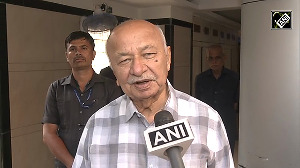 The decision of the Securities and Exchange Board of India to allow the National Stock Exchange and the Bombay Stock Exchange to set up exchanges aimed at micro, small and medium enterprises is laudable since an exchange aimed at the MSME sector can potentially circumvent an important constraint on MSME growth in India.
The decision of the Securities and Exchange Board of India to allow the National Stock Exchange and the Bombay Stock Exchange to set up exchanges aimed at micro, small and medium enterprises is laudable since an exchange aimed at the MSME sector can potentially circumvent an important constraint on MSME growth in India.The key criteria of the decision are: no need for a three-year track record to reduce entry barriers, half-yearly reporting to reduce reporting costs, a minimum lot size of Rs. 1 lakh to limit individuals from undertaking risky trades, and a maximum issue size of Rs. 25 crore (Rs. 250 million) to prevent larger firms from entering.
Accessing risk capital with low reporting requirements and transaction costs will benefit MSMEs in many ways.
The first is the obvious one of there being another source of funds. The second, perhaps more important, is that it will enable venture capitalists to have an exit option that was hitherto missing. Thus, it is expected to lower the cost of VC funding.
Moreover, information asymmetry relating to MSMEs is a major cause of their constrained growth. But it is not just new MSMEs that are expected to benefit.
There are thousands of stocks within the NSE, for example, that are rarely traded.
Many of these are small entities that could shift to an MSME exchange with lower transaction costs and access a more MSME-focused set of traders.
Other countries have had a very positive experience with exchanges aimed for the MSME sector. Nasdaq in the US saw the initial listings of Microsoft, Intel and Oracle before they had become large blue-chip
AIM in the UK has been another success. Apart from developed western countries, others like Singapore, Korea, Japan and South Africa also offer encouraging examples. Even China now has an MSME-oriented exchange in the form of ChiNext.
India has been a latecomer but could gain tremendously from other countries' experiences. India's own experience in MSME-oriented stock listings has not been good.
Both over-the-counter and independent stock exchanges have failed in the past and it remains to be seen whether the NSE or the BSE can put together a winning package of services for their new MSME-focused platforms.
The constraints are many, from both the supply and the demand sides. But the critical ones will come from the regulatory end.
Sebi will continuously need to balance its objectives of transparency and fair play with low transactions costs and ease of entry for MSMEs.
High reporting requirements or other checks and balances may improve transparency and eliminate the bad fish, but they would also increase costs and reduce entry.
Regulators and policy makers will need to continuously monitor and strike a balance between cost and efficiency for MSME exchanges to work.
However, the recent goings-on in this domain leave much to be desired. The Competition Commission of India has presented a strong case against the NSE, while Sebi has been convincingly accused of sitting on MCX-SX application.
Transparency, fair play and ease of entry and exit are the most important components of a stable and well-functioning financial system.
All the players - regulators, incumbents and new entrants - would do well to stand by that principle.











 © 2025
© 2025